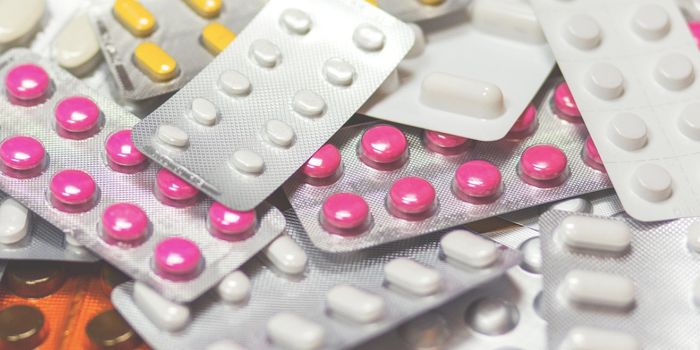Chances are you’ve taken a probiotic, whether you realized it or not. They line the grocery store shelves and have become a real hot topic over the last decade with claims that they can treat a variety of health conditions.
The Food and Agriculture Organization of the United Nations defines probiotics as “live microorganisms, that when administered in adequate amounts, confer a health benefit on the host.” The whole point of taking probiotics is that it’s important for our gut microbiomes to be healthy (whatever “healthy” actually means). By taking a probiotic, in pill or food form, we add “good” microbes to our guts - and that makes us healthy.

There doesn’t seem to be a lot of hard evidence on whether or not probiotics really work - that is, whether they really change the makeup of our gut bacteria in a lasting way (I tend to be skeptical). The FDA does, however, recommend that claims made about probiotics be “adequately substantiated.” This means that there must be “
competent and reliable scientific evidence” to back the product. From what I gather, as long as companies don’t intentionally mislead consumers or sell an unsafe product, you can call something a probiotic without any really hard evidence to back your claims. (The fine print is undoubtedly more fine than that.)
Looking past regulations and fine print, what might probiotics do for you?
The most commonly-used probiotics are bacteria in the genus Lactobacillus and
Bifidobacterium (these Gram-positive bacteria already live in our guts).
Lactobacillus is used in starter cultures for making yogurt, cheese, and even pickles. Both
Lactobacillus and
Bifidobacterium inhibit the growth of
Candida (a yeast and opportunistic pathogen), and
Bifidobacterium also inhibits the growth of potentially-harmful
E. coli. The yeast
Saccharomyces boulardii is also used. There’s some evidence that
S. boulardii helps treat
Clostridium difficile colitis and
Helicobacter pylori infections.
There are three main ways to deliver probiotics. First, bacterial culture concentrates can be added to foods. In this case, the bacteria don’t continue to grow in the food product. Second, cultures can be inoculated into a dairy-based food where they can continue to multiply to some degree - yogurt and some cheeses, for example. And third, cultures can be concentrated and dried so they can be packaged as powders or pills (presumably they are rehydrated after being consumed, allowing the bacteria to grow and function normally).
One thing that probiotics may help with is cancer. They may help prevent DNA damage in the colon and help detoxify mutagens. In one case, Lactobacillus casei Shirota was tested as a probiotic to help increase the time between bladder cancer remission and recurrence. The recurrence time doubled in patients who took the probiotic compared to those who didn’t.
There’s also evidence that probiotics help with diarrhea and overall intestinal function.
Lactobacillus has been used with great success to treat diarrhea in children. It is sometimes recommended that people taking antibiotics bolster their gut microbiomes by taking a probiotic. The idea is that antibiotics can upset the balance between good and bad bacteria.
Lactobacillus,
Bifidobacterium, and
Saccharomyces have all been used in this regard.
Probiotics may even have an effect on your brain (I seem to recall a number of articles published recently that cite a brain-gut connection). There’s a
study that used
Lactobacillus and
Bifidobacterium to help improve mood and brain function. The participants reported reduced depression and anger and reported being better focused for daily tasks.
In some cases and some people, probiotics may definitely help, but we need hard evidence to base these claims on. Keep on popping those probiotic pills and eating your yogurt, though - it doesn’t seem like probiotics are going to hurt you!
Sources: Harvard Medical School,
California Dairy Research Foundation,
Annals of the New York Academy of Sciences,
European Urology,
The Journal of Nutrition,
The British Journal of Nutrition,
Johns Hopkins Medicine, Wikipedia









